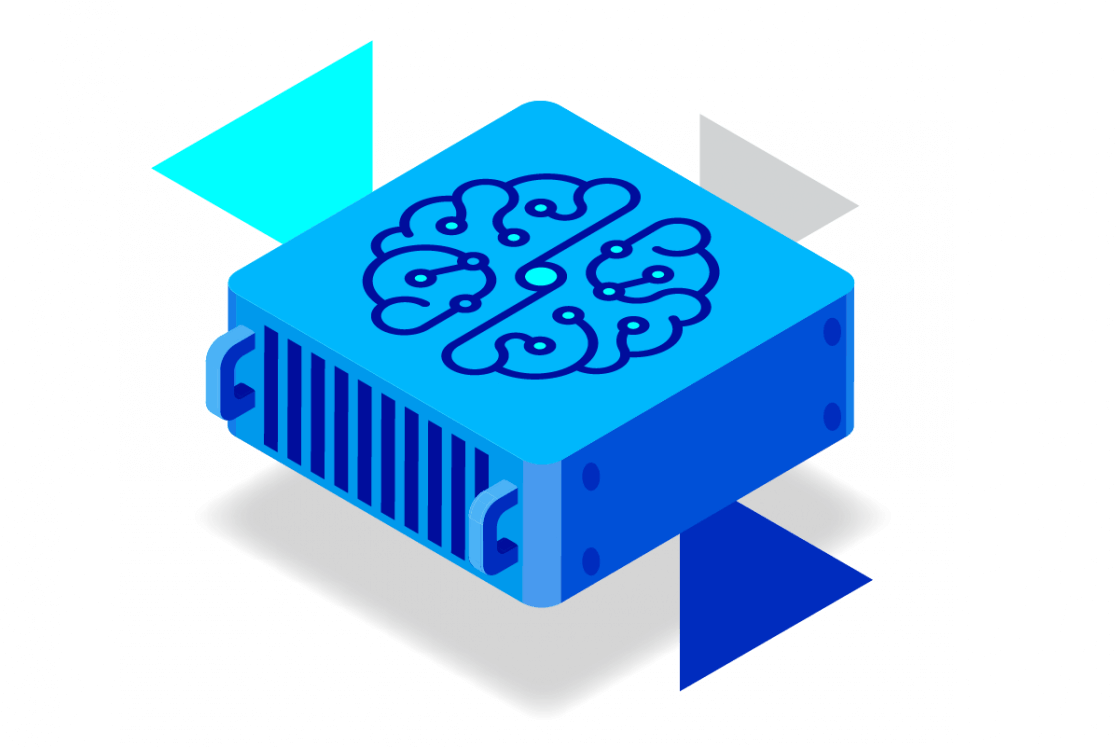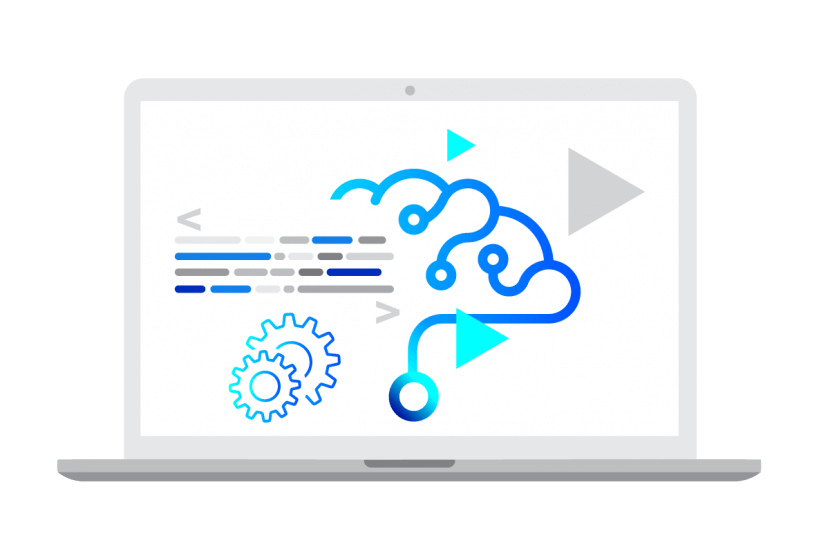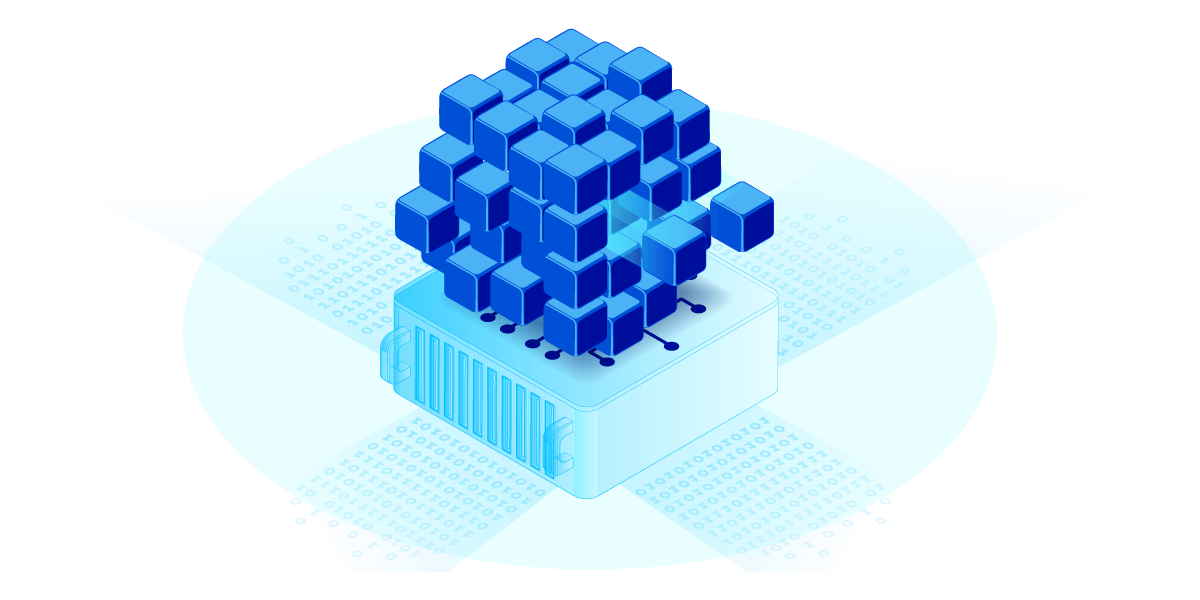What is a qubit?
Qubits are the fundamental building blocks of quantum computing, representing the quantum version of classical bits. Unlike classical bits, which can be either the number 0 or the number 1, qubits can exist simultaneously in a state of 0, 1, or both, thanks to superposition and entanglement principles.
This unique property allows quantum computers to perform complex calculations more efficiently than their classical counterparts. The following article will delve deeper into qubits and quantum computing, exploring how they work, their applications, and the impact they could have on various fields.

What is quantum computing?
Regular computers rely on bits, tiny switches that can be either a one or a 0. Quantum computers take a different approach. They use qubits, which harness the bizarre world of quantum mechanics. Unlike bits, qubits can exist in a state called superposition, being both 1 and 0 simultaneously. This lets them explore many possibilities simultaneously, like trying out every combination in a maze at once.
This "superpower" allows quantum computers to excel at specific problems that would take regular computers an impractical amount of time to solve. Imagine trying to find the best route across a vast, complex city. A regular computer would have to check each road one by one.
A quantum computer, using superposition, such as those built by IBM, could explore every route concurrently, finding the optimal path much faster. This opens doors for tasks like cracking complex codes, simulating molecules for new materials, and optimising logistics on a massive scale.
However, this technology is still young. Building and controlling these qubits is highly challenging, and quantum computers are far from replacing our everyday computers.
Benefits of quantum computing
Regular or classical computers process information using bits, either a 0 or a 1. Quantum computers, on the other hand, leverage the strangeness of quantum states to use qubits. Qubits can be a 0, a 1, or both simultaneously, thanks to a property called superposition. This ability unlocks several advantages over classical computers:
Supercharged problem-solving
A single quantum bit can explore many possibilities simultaneously due to superposition. This allows quantum computers to tackle specific problems exponentially faster than classical computers, especially those that involve complex simulations or massive datasets.
Materials
Classical computers are notoriously tricky at simulating the behaviour of molecules and materials. Quantum computers, however, can excel at this task, paving the way for breakthroughs in material science, drug discovery, and more.
Code cracking and code creation
Quantum computers threaten current encryption methods, which rely on the difficulty of factoring large numbers. However, they can also be used to develop new, unbreakable forms of cryptography.
Optimisation
Quantum computing has the potential to revolutionise optimisation problems, such as logistics and scheduling. This could significantly improve areas like traffic flow, delivery routes, and financial modelling.
It's important to remember that quantum computing is still in its early stages. Building and maintaining these machines is complex, designed only partially to replace classical computers. Instead, they'll likely be used for specific tasks that are beyond the reach of traditional computers.
Applications of quantum computing
One critical application of quantum computing is drug discovery. Currently, drug discovery is a slow and expensive process. Simulating molecules with classical computers is incredibly complex.
Quantum computers such as IBM’s resources, however, could excel at this task. Their ability to handle superposition allows them to analyse the behaviour of molecules and chemical reactions with much higher precision. This could lead to faster development of new drugs, personalised medicines, and more effective treatments for cancer and Alzheimer's.
It’s also expected that quantum computers will begin to unlock new materials. Imagine designing materials with properties never before seen. Quantum computers could open doors to this possibility. By simulating materials at the atomic level, scientists could tailor properties like conductivity, strength, or weight. This could lead to breakthroughs in areas like:
- Superconductors: Developing materials that conduct electricity with zero resistance, revolutionising power grids and enabling highly efficient energy transmission.
- Batteries: Designing batteries with significantly higher capacity and faster charging times for electric vehicles and portable electronics.
- Lightweight and super-strong materials: Creating materials with unprecedented strength-to-weight ratios for aerospace, construction, and transportation use.
Overall, quantum computing will do much to optimise complex systems. Our world relies on complex systems like traffic networks, financial markets, and logistics chains. Quantum computers could significantly improve how these systems operate. Their ability to solve optimisation problems efficiently allows for:
- More innovative logistics: Optimizing company delivery routes, reducing transportation costs and emissions. Imagine finding the most efficient route for every truck in a delivery fleet, considering factors like traffic, weather, and real-time updates.
- Enhanced financial modelling: Quantum algorithms could analyse vast amounts of economic data, leading to more accurate risk assessments and better investment strategies.
- Resource allocation optimisation: From managing energy grids to distributing water resources, quantum computers could find the most efficient way to allocate resources based on real-time data and complex calculations.
Quantum computing for AI
There’s a good chance that quantum computing can reinvent artificial intelligence (AI). Machine learning, a core technology of AI, relies on processing massive datasets. Quantum computers could significantly accelerate this process. By developing more powerful quantum algorithms, we could unlock the potential for:
Fast training of AI models:
Training complex AI solutions currently takes significant time and computing power. Quantum computers will begin to dramatically speed up the process of training an AI algorithm, leading to more powerful and sophisticated AI applications.
Advanced natural language processing:
Quantum computing could lead to breakthroughs in a subfield of AI called natural language processing, allowing computers to understand and process human language with greater accuracy. Imagine machines that can translate languages seamlessly or write different creative text formats like poems or scripts with near-human fluency.
Breaking current encryption standards:
While this might sound scary, it's also an opportunity. The encryption standards that protect our online data today rely on complex mathematical problems that are difficult for classical computers to crack. Quantum computers could break these codes, necessitating the development of new, post-quantum cryptography standards to ensure the future security of our data.
It's also interesting to argue that quantum computers could simulate the quantum world well. The universe operates on quantum principles, and simulating these phenomena is challenging for classical computers. Quantum computers, built on the same principles, can model quantum systems with much greater accuracy.
This opens the door to advancements in simulating complex materials at the atomic level, which allows scientists to understand how their properties emerge from the underlying quantum interactions.
Quantum algorithms could help us probe the mysteries of the universe, such as dark matter and dark energy, by simulating complex physical phenomena. Some scientific problems involve complex calculations that classical computers cannot handle. Quantum computing offers a path forward for climate modelling, and more accurate climate models could be developed by simulating the complex interactions between the atmosphere, oceans, and land with much higher fidelity.
By simulating their extreme environments, Quantum computers could help us understand phenomena like black holes and neutron stars.
Qubit in quantum computing
Without qubits and their unique properties, quantum computers including those built by IBM couldn't perform the mind-blowing calculations they're designed for. These fundamental building blocks unlock a new level of parallel processing and information sharing, making them the key ingredient for quantum computing's revolutionary potential.
Regular computers process information one bit at a time, like following a single path through a maze. Qubits, however, can be 0, 1, or both at once (superposition), So They act like exploring every path in the maze simultaneously. This lets them tackle problems that involve many possibilities much faster. Imagine checking every combination on a combination lock at once—that's the power of superposition in action.
Qubits can become entangled, meaning their fates are linked. A change in one qubit instantly affects the other, even if they're far apart. This spooky connection allows them to work together on calculations, exponentially increasing processing power. Imagine multiple super-powered calculators collaborating and sharing information seamlessly – that's the essence of entanglement in quantum computing.

What is the difference between regular computing and quantum computing?
The difference between standard and quantum computing is like comparing a flashlight to a laser pointer. In standard computing, information is processed using bits, the basic building blocks that function like tiny light switches with a state of either on (1) or off (0), which creates a bit. This allows us to quickly perform everyday tasks, like browsing the Internet or working with documents. However, these computers follow a linear path; they tackle problems one step at a time.
Quantum computing breaks this mould. Instead of bits, it uses qubits, which can exist simultaneously in mind-bending states of being both 0 and 1, a phenomenon called superposition. Imagine if your flashlight could shine in multiple directions simultaneously - that's the power of a qubit.
Additionally, quantum computers can exploit a concept known as entanglement, where the state of one qubit is mysteriously linked to another. This allows for computations that would leave regular computers in the dust.

As a result, quantum computers aren't meant to replace your laptop's number-crunching capabilities. They are specialised tools designed to revolutionise specific fields. Imagine trying to simulate a complex molecule where countless atoms interact in unpredictable ways—these are problems classical computers struggle with.
Quantum computers, by mimicking the very quantum nature of matter, can unlock unprecedented insights into material design and drug discovery. AI training solutions, cryptography, and optimisation of enormous datasets are all domains where quantum computing could change the game entirely. A typical computer will still be happily humming along, doing all your regular tasks.
OVHcloud and qubit
Get your notebooks up and running in seconds.
Get your projects and models off to a flying start with notebooks.
Are you a data scientist or developer looking to launch a notebook in less than 15 minutes? Use our AI Notebooks solution to quickly access Jupyter or VS Code, and launch your notebooks right away with the resources you need. You also get secure user access, simplified use of your data, and the most popular artificial intelligence frameworks (TensorFlow, PyTorch, Hugging Face and Scikit-learn) as well as quantum emulators (Quandela Perceval, Eviden's MyQLM, C12's Callisto and Alice&Bob's Felis) to develop your business.

Quick and simple training for AI models
Launch your AI training tasks in the cloud, without having to worry about how the infrastructure works. AI Training enables data scientists to focus on their core business, without having to worry about orchestrating computing resources.
This solution is built on the open-source Kubernetes platform, and enables you to train your models easily — in just a few clicks, or in the command line. Save time, increase your team’s productivity, and maintain the integrity of your sensitive data.
